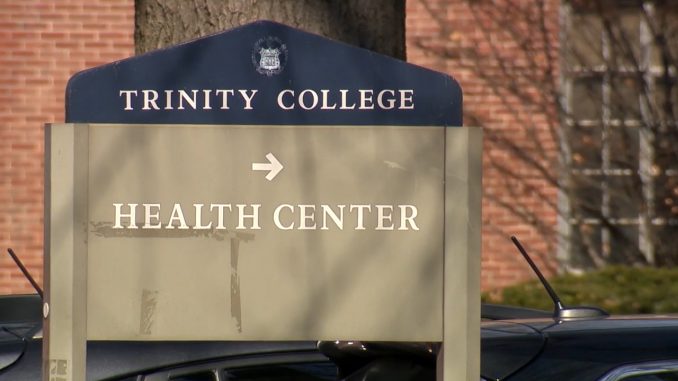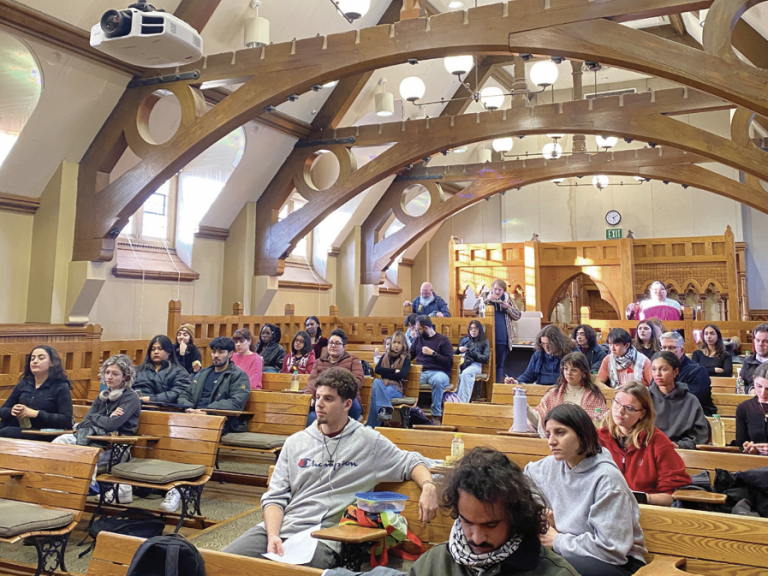Faith Monahan ’24
News Editor
In an email to the community on Aug. 10, the Trinity College Health Center announced that it is working closely with the Connecticut Department of Public Health and Hartford HealthCare to address the potential spread of monkeypox on campus. Trinity is partnering with these groups to facilitate the process of identifying infected individuals, providing monkeypox testing, acquiring vaccines for those who meet eligibility requirements, and offering treatment options as medically indicated.
“While the risk to the campus community currently remains low, we are preparing for the possibility of monkeypox cases on campus and will continue to keep the campus community informed about this and any other public health risks,” wrote Trinity’s RN Supervisor Jennifer Grady and Hartford HealthCare’s Regional Director of Campus Care Demetra Eleftheriou in their announcement.
Grady and Eleftheriou indicated that vaccines and antiviral medications are already available as monkeypox and smallpox are very genetically similar. While vaccines for monkeypox are currently in short supply, they can be obtained through the Connecticut Department of Public Health to those who meet eligibility requirements. “Medications may also be recommended for people who are more likely to get severely ill, such as those with weakened immune systems.”
The Centers for Disease Control and Prevention (CDC) and the World Health Organization (WHO) are currently tracking the global outbreak of the monkeypox virus which is an infectious viral disease that has been spreading worldwide and across the country since May of this year. Monkeypox is not a new virus and it is related to the smallpox virus family that was originally discovered in 1958 among laboratory monkeys. The United States officially eradicated the virus in 1972; nevertheless, there has recently been a resurgence in the virus which has prompted WHO and the United States to declare a global health emergency and a public health emergency, respectively.
Monkeypox does not spread as easily as COVID-19, according to Grady and Eleftheriou; however, they continued, “[i]t is important to understand that anyone can become infected with monkeypox, so everyone should take the proper precautions.” Grady and Eleftheriou indicated that the virus can be spread through prolonged direct and personal contact with someone who is infected: intimate contact (i.e., kissing, cuddling, sex) or contact with rashes, scabs, and body fluids.
In August, npr reported that colleges and universities across the country are preparing for the spread of monkeypox. At the University of California, Irvine, for example, students in isolation work with their faculty members to determine how to learn remotely. Lake Forest College, located in Lake Forest Illinois, also plans to help students isolate themselves if they contract the virus. Furthermore, in Ithaca, New York, Cornell University is in the process of “developing, testing, treatment, and isolation protocols for those affected,” according to Rebecca Valli director of media relations.
The same article reported that monkeypox has already affected students at various institutions over the summer including Georgetown University in the District of Columbia, the University of Texas at Austin, and West Chester University in Pennsylvania. “The student is in isolation and continues to do very well. There is a plan in place for them to finish their class remotely, and the student will not return to campus for the summer term,” stated Nancy Grainer, a spokesperson for West Chester University.
Grady and Eleftheriou advised those who develop a rash or other monkeypox symptoms to contact the College’s Health Center immediately.






+ There are no comments
Add yours